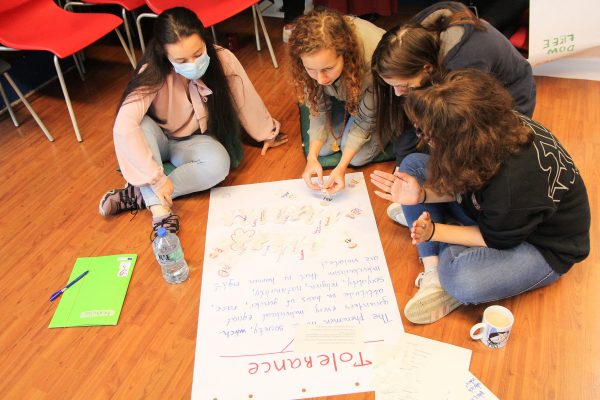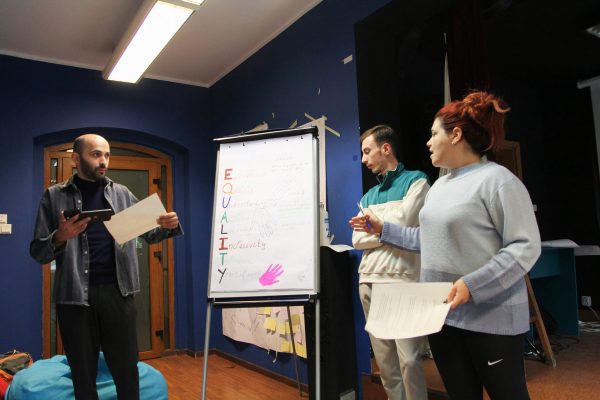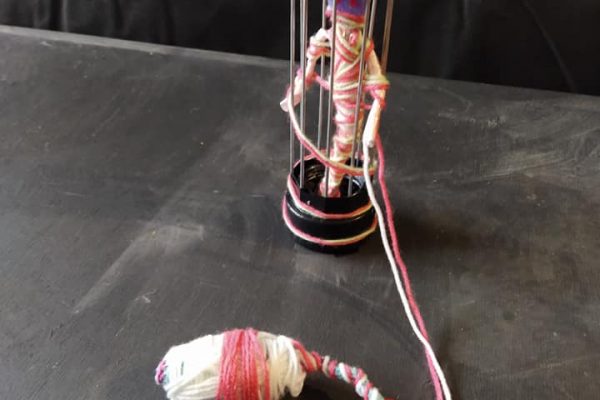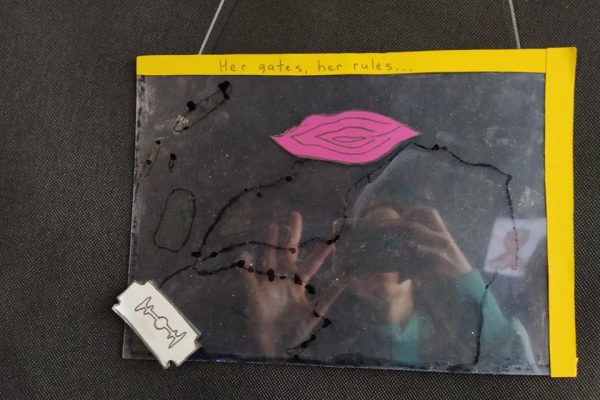
From 19 to 26 September 2021 in Poznan, Poland was held a training course related to human rights and art tools that can be useful for informing and changing attitudes. Maria Kadieva and Martina Lapica from Bulgaria joined. Here is what they shared with us:
“Traveling to Poland and participating in our first ever Erasmus+ training was an incredibly novel and rewarding experience for me and Martina. Getting to Poznan was an adventure in itself, аs we had two flights and one four-hour train to catch, but we arrived safely, so it was all good. As soon as we arrived, we immediately went to a restaurant where all the other participants had gathered, and we had dinner with them. This is when we had our first contact with these people who came from seven different countries (excluding ours i.e. Bulgaria): Turkey, Greece, Belarus, Ukraine, Spain, Armenia and Georgia.
During the next couple of days, all of us worked together on many little tasks related to the topic of our training, namely human rights and art. We were given several lectures by our coordinators, but we also had many group discussions and group projects which challenged our creativity and critical thinking. For example, we learned how to create impactful slogans that we could use for a human rights campaign. We also learned how to market our future campaigns in order for them to reach a wider audience. But the most fulfilling activity for me, and I believe for many others, was creating conceptual art that tackled a human right of our choice. And my personal favourite project was the one of Beka and Davit, two guys from Georgia, who had taken a spoon and had written “prohibited love” on the bowl and “can you swallow it” on the handle (LGBTQ+ rights).
Overall, it was amazing to learn more about human rights through our planned tasks, but also to have those one-on-one personal conversations about human rights with the participants outside of the scheduled activities. I cannot wait to learn more about the participants and about human rights when we all reconvene in Georgia around April, when we will be discussing how we have implemented what we have learned in our home countries .“
Now we have to prepare a campaign here in Bulgaria. The girls have already come up with several ideas. Expect our news on the topic.
The training is supported by the European program “Erasmus+”.
Host and author of the training program is: CIM Horyzonty (http://www.cimhoryzonty.org/ )














